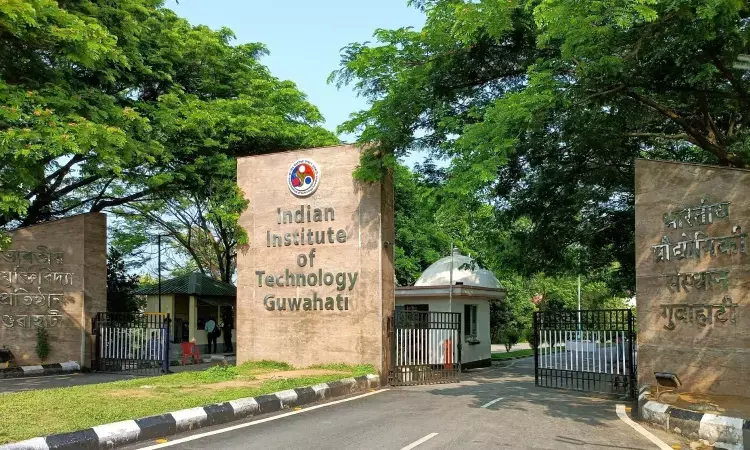- Home
- Medical news & Guidelines
- Anesthesiology
- Cardiology and CTVS
- Critical Care
- Dentistry
- Dermatology
- Diabetes and Endocrinology
- ENT
- Gastroenterology
- Medicine
- Nephrology
- Neurology
- Obstretics-Gynaecology
- Oncology
- Ophthalmology
- Orthopaedics
- Pediatrics-Neonatology
- Psychiatry
- Pulmonology
- Radiology
- Surgery
- Urology
- Laboratory Medicine
- Diet
- Nursing
- Paramedical
- Physiotherapy
- Health news
- Fact Check
- Bone Health Fact Check
- Brain Health Fact Check
- Cancer Related Fact Check
- Child Care Fact Check
- Dental and oral health fact check
- Diabetes and metabolic health fact check
- Diet and Nutrition Fact Check
- Eye and ENT Care Fact Check
- Fitness fact check
- Gut health fact check
- Heart health fact check
- Kidney health fact check
- Medical education fact check
- Men's health fact check
- Respiratory fact check
- Skin and hair care fact check
- Vaccine and Immunization fact check
- Women's health fact check
- AYUSH
- State News
- Andaman and Nicobar Islands
- Andhra Pradesh
- Arunachal Pradesh
- Assam
- Bihar
- Chandigarh
- Chattisgarh
- Dadra and Nagar Haveli
- Daman and Diu
- Delhi
- Goa
- Gujarat
- Haryana
- Himachal Pradesh
- Jammu & Kashmir
- Jharkhand
- Karnataka
- Kerala
- Ladakh
- Lakshadweep
- Madhya Pradesh
- Maharashtra
- Manipur
- Meghalaya
- Mizoram
- Nagaland
- Odisha
- Puducherry
- Punjab
- Rajasthan
- Sikkim
- Tamil Nadu
- Telangana
- Tripura
- Uttar Pradesh
- Uttrakhand
- West Bengal
- Medical Education
- Industry
IIT Guwahati's new device to detect foods' glycemic index in just 5 mins

Researchers from IIT Guwahati have developed a portable sensor capable of determining the glycemic index (GI) of common foods within five minutes. This device aids individuals with diabetes and those monitoring their blood sugar through dietary choices.
Guwahati: Researchers from the Indian Institute of Technology (IIT) Guwahati have developed a reliable, affordable and portable sensor that can detect the glycemic Index (GI) of common food sources in about five minutes and help people with diabetes or those managing their blood sugar through diet.
The GI is a measure that ranks carbohydrate-containing foods based on how they affect blood sugar levels when consumed.
High-GI food can cause a rapid spike in blood glucose levels, followed by a swift decline.
Also Read:IIT Guwahati alumni develop device to diagnose chronic non-communicable diseases
Moreover, these high-GI foods stimulate an increased demand for insulin, contributing to the risk of developing Type-2 diabetes.
Importantly, low-GI food helps to prevent diabetes, heart disease, obesity, and cancer.
As the trend of fast-food increases among the world's working population, the need for a portable device that can immediately detect and guide the user about the GI of the food arises.
The point-of-care-testing (POCT) prototype developed by the team can detect the glycemic Index of common food sources in approximately five minutes.
“We developed a composite nanoenzyme by combining gold nanoparticles with alpha-amylase to break down long-chain starch molecules into simpler sugars. We found that this nanoenzyme of approximately 30 nanometre size has remarkable heterogeneous catalytic properties to rapidly degrade starch into maltose at room temperature,” said Prof. Dipankar Bandyopadhyay, Department of Chemical Engineering, at IIT Guwahati, explaining the detection methods.
The amount of maltose produced is then electrochemically detected to classify the food sources into Rapidly Digestible Starch (RDS) and Slowly Digestible Starch (SDS) along with Resistant Starch (RS).
“When we tested the device on fast foods like crackers, biscuits, chips, and bread, we found that crackers have the most RDS, followed by potato chips, and then brown bread. Notably, the SDS/RS of brown bread releases maltose slowly, causing a gradual increase in glucose levels and a lower response from insulin in the body,” Prof. Bandyopadhyay said.
The research findings have been published in the journal Sustainable Chemistry & Engineering.
Kajal Rajput joined Medical Dialogues as an Correspondent for the Latest Health News Section in 2019. She holds a Bachelor's degree in Arts from University of Delhi. She manly covers all the updates in health news, hospitals, doctors news, government policies and Health Ministry. She can be contacted at editorial@medicaldialogues.in Contact no. 011-43720751


